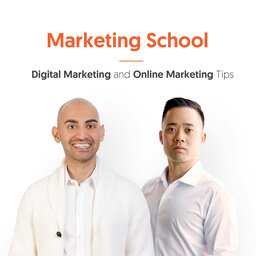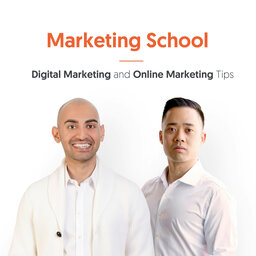How to Create More Engaging Content
In episode #2590, we dive into the topic of creating engaging content. We stress the importance of avoiding AI-generated content, as it lacks originality and quality. Instead, we advocate for creating fresh and unique content that provides real value to the audience. We also discuss the need for short, digestible content that captures attention in today's fast-paced world. Furthermore, we highlight the power of storytelling and novelty in creating engaging content. Ultimately, the key lies in finding what resonates with both the creator and the audience.
TIME-STAMPED SHOW NOTES:
- (00:00) Today’s topic: How to Create More Engaging Content
- (00:08) Don't use AI to create content
- (01:04) AI-generated content leads to low-quality pages
- (02:25) Create new and fresh content
- (03:12) SEO is getting harder
- (04:41) People want novelty and interesting data
- (05:07) Short, digestible content performs better
- (06:09) Appeal to the masses with engaging content
- (07:17) Specific technical and data-rich content is engaging
- (08:26) Find what type of content resonates with you
- (08:57) Trade-offs of creating engaging content.
- (09:22) Listeners engage with content in spurts and execute strategies.
- (09:55) Importance of creating new and engaging content.
- (10:21) Look at what's trending in other industries for inspiration.
- (11:00) Analyzing content engagement based on talk time in different industries.
- (12:13) Adapt concepts from other industries to your own content.
- (12:27) Go to https://www.marketingschool.io to learn more!
Links Mentioned in Today’s Episode:
- Don’t forget to help us grow by subscribing and liking on YouTube!
- ChatGPT
- Google Bard
- MrBeast $1 Vs $1,000,000,000 Yacht!
Leave Some Feedback:
- What should we talk about next? Please let us know in the comments below
- Did you enjoy this episode? If so, please leave a short review.
Connect with Us:
- Single Grain << Eric’s ad agency
- NP Digital << Neil’s ad agency
- X @neilpatel
- X @ericosiu
Learn more about your ad choices. Visit megaphone.fm/adchoices
Marketing School - Digital Marketing and Online Marketing Tips
Neil Patel and Eric Siu bring you daily ACTIONABLE digital marketing lessons that they've learned th…Social links
Follow podcast
Recent clips

Mastermind Dinners: LeadGen That Actually Works in 2024
16:08

30M vs 500 Views - The One Change That Made All The Difference
12:35

AI concierge will affect dating - implications for business, Perplexity's AI-generated podcast, OpenAI dissolves team focused on long-term AI risks (less than one year after announcing it), Why swarming is killing SEO, and Ag1 spent $40m on podcasts
10:47
 Marketing School - Digital Marketing and Online Marketing Tips
Marketing School - Digital Marketing and Online Marketing Tips